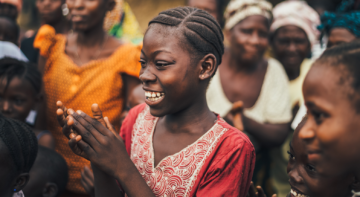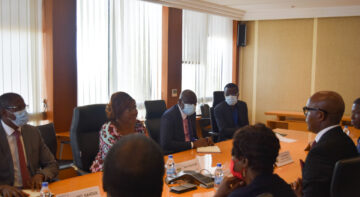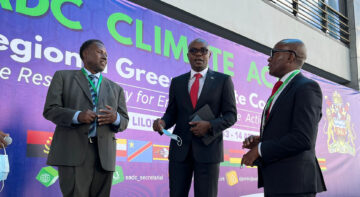Blogs

The COVID-19 pandemic demonstrates the world’s interconnectedness, and how vital it is for scientists to work together across national and regional boundaries. Despite the pandemic’s severity and impacts on economies, education, health, and social lives, it has illustrated important lessons on the value of scientific cooperation, research-policy partnerships, and building consensus on what matters — good health and life. These lessons are pertinent to achieving the Sustainable Development Goals.
COVID-19 has emphasised the importance of partnerships between researchers, communication specialists, the public, and policymakers. There have been collaborative papers from scientists across the globe, with the largest numbers coming from scientists from the USA and China. Most of this research has been published in open-access journals (OECD, 2021). Rose and Estes (2021) highlight the importance of trusted researcher-policymaker partnerships in the fight against COVID-19.
Indeed, we have witnessed rapid responses in government decisions to provide funding for COVID-19 research and seen real-time use of scientific outputs in policy formulation and decision-making. Scientists and heads of governments have shared podiums in solidarity as they justify the reasoning for unpopular decisions such as lockdowns. Science editors and communication experts have supported the translation of complex results for general audiences.
Yet, challenges exist as not all scientists have benefitted from the expertise of science editors/knowledge translation scientists, such that research papers remain out of reach for the general public. Amid a global challenge, distilling scientific messages is important. Open science, while addressing the accessibility of scientific journal papers must also invest in capacity building for knowledge translation and packaging for different audiences.
Global commitments for climate change require the same approach to partnerships as seen with COVID-19. Climate change research needs to be translatable and generalisable, with a clear path to impacts. Of particular value is research that is replicable in diverse settings, indicating a clear path to policy/programmatic utilisation. Research knowledge from such projects should be open immediately so that it informs local decision-making.
Furthermore, there is now a greater expectation that research informing collective decisions like climate change commitments should include researchers from low-and middle-income countries (LMICs). “Not without us,” is the repeated cry when there are attempts to generalise findings from other parts of the world to local settings. Products from collaborative research must be accessible to LMIC researchers and communities who were party to the generation of the knowledge. It is ethically wrong to charge for access to knowledge generated this way.
There exists a need to agree on what is essential to humanity, including staying healthy longer. COVID-19 has illustrated that it is impossible to achieve this if we deny our interconnectedness and commonality of our destiny as co-inhabitants of earth. The creation of the COVAX initiative to ensure that people in LMICs have access to COVID-19 vaccinations, and renewed commitments at the G7 to provide them now instead of after rich countries’ citizens are fully vaccinated, shows an understanding of this common destiny. The threats to human lives and health from climate change should be enough to propel the same urgency. Health effects from polluted natural resources are reducing life spans, and emergencies such as flooding and drought that are attributed to climate change are already killing millions of people in LMICs.
The World Health Organization (2018) estimates that climate change is expected to cause approximately 250 000 additional deaths per year between 2030 and 2050, mostly in LMICs. But rich countries will not escape. Hauer et al (2021), provide a conservative estimate of the reduction in life expectancy due to climate change of between 0.24 years to 1 year in European countries by 2100. Some of the climate change effects will give rise to future epidemics and pandemics like COVID-19. The major lesson from COVID-19 is that we have a shared destiny and collective responsibility.
Finally, innovative ways of financing the publication of research are needed so that scientists are not choosing a journal based on affordability of the Article Processing Charges (APC) but scientific fit. The UK government commissioned the international development charity, INASP, to consult on the challenges and opportunities that open access presents to LMIC stakeholders. Their report, published in October 2020, found that under the current open access models, high APC disadvantage researchers from LMICs often have to pay out-of-pocket because unlike in high-income countries, there are no institutional funds to pay APC. To ensure equitable and open science, funders must continue working collaboratively to review their open-access policies and join up with initiatives like Plan S.
Related Posts





